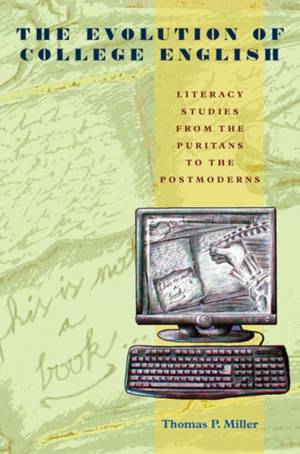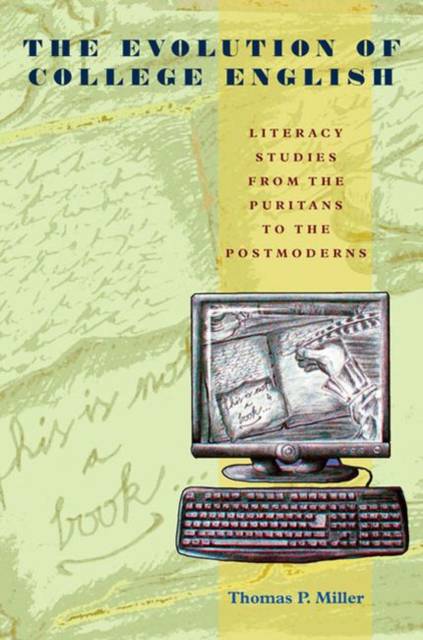
En raison d'une grêve chez bpost, votre commande pourrait être retardée. Vous avez besoin d’un livre rapidement ? Nos magasins vous accueillent à bras ouverts !
- Retrait gratuit dans votre magasin Club
- 7.000.000 titres dans notre catalogue
- Payer en toute sécurité
- Toujours un magasin près de chez vous
En raison de la grêve chez bpost, votre commande pourrait être retardée. Vous avez besoin d’un livre rapidement ? Nos magasins vous accueillent à bras ouverts !
- Retrait gratuit dans votre magasin Club
- 7.000.0000 titres dans notre catalogue
- Payer en toute sécurité
- Toujours un magasin près de chez vous
The Evolution of College English
Literacy Studies from the Puritans to the Postmoderns
Thomas Miller
91,95 €
+ 183 points
Description
Thomas P. Miller defines college English studies as literacy studies and examines how it has evolved in tandem with broader developments in literacy and the literate. He maps out \u201cfour corners\u201d of English departments: literature, language studies, teacher education, and writing studies. Miller identifies their development with broader changes in the technologies and economies of literacy that have redefined what students write and read, which careers they enter, and how literature represents their experiences and aspirations. Miller locates the origins of college English studies in the colonial transition from a religious to an oratorical conception of literature. A belletristic model of literature emerged in the nineteenth century in response to the spread of the \u201cpenny\u201d press and state-mandated schooling. Since literary studies became a common school subject, professors of literature have distanced themselves from teachers of literacy. In the Progressive era, that distinction came to structure scholarly organizations such as the MLA, while NCTE was established to develop more broadly based teacher coalitions. In the twentieth century New Criticism came to provide the operating assumptions for the rise of English departments, until those assumptions became critically overloaded with the crash of majors and jobs that began in 1970s and continues today. For models that will help the discipline respond to such challenges, Miller looks to comprehensive departments of English that value studies of teaching, writing, and language as well as literature. According to Miller, departments in more broadly based institutions have the potential to redress the historical alienation of English departments from their institutional base in work with literacy. Such departments have a potentially quite expansive articulation apparatus. Many are engaged with writing at work in public life, with schools and public agencies, with access issues, and with media, ethnic, and cultural studies. With the privatization of higher education, such pragmatic engagements become vital to sustaining a civic vision of English studies and the humanities generally.
Spécifications
Parties prenantes
- Auteur(s) :
- Editeur:
Contenu
- Nombre de pages :
- 368
- Langue:
- Anglais
- Collection :
- Tome:
- n° 163
Caractéristiques
- EAN:
- 9780822961161
- Date de parution :
- 09-01-11
- Format:
- Livre broché
- Format numérique:
- Trade paperback (VS)
- Dimensions :
- 155 mm x 231 mm
- Poids :
- 498 g

Les avis
Nous publions uniquement les avis qui respectent les conditions requises. Consultez nos conditions pour les avis.






